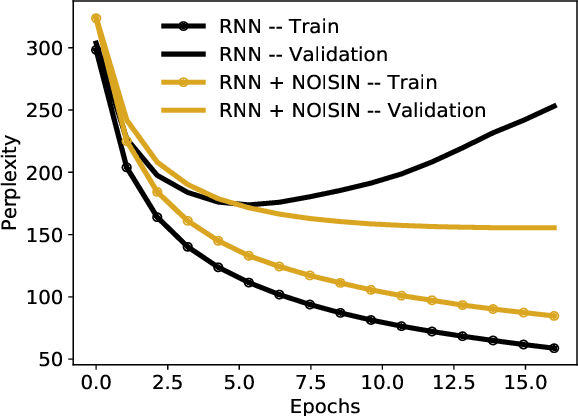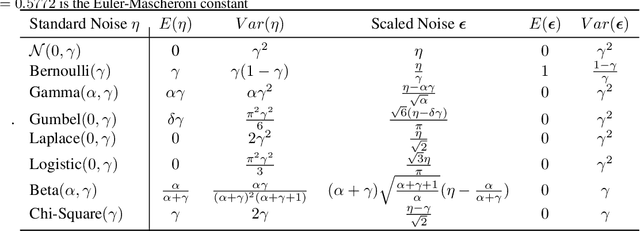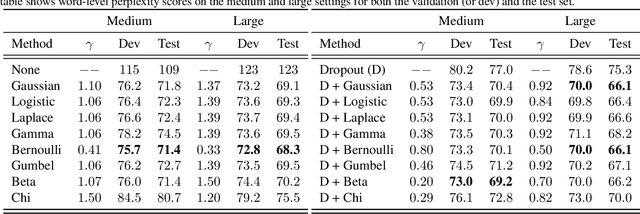Noisin: Unbiased Regularization for Recurrent Neural Networks
Paper and Code
Jul 13, 2018



Recurrent neural networks (RNNs) are powerful models of sequential data. They have been successfully used in domains such as text and speech. However, RNNs are susceptible to overfitting; regularization is important. In this paper we develop Noisin, a new method for regularizing RNNs. Noisin injects random noise into the hidden states of the RNN and then maximizes the corresponding marginal likelihood of the data. We show how Noisin applies to any RNN and we study many different types of noise. Noisin is unbiased--it preserves the underlying RNN on average. We characterize how Noisin regularizes its RNN both theoretically and empirically. On language modeling benchmarks, Noisin improves over dropout by as much as 12.2% on the Penn Treebank and 9.4% on the Wikitext-2 dataset. We also compared the state-of-the-art language model of Yang et al. 2017, both with and without Noisin. On the Penn Treebank, the method with Noisin more quickly reaches state-of-the-art performance.
 Add to Chrome
Add to Chrome Add to Firefox
Add to Firefox Add to Edge
Add to Edge